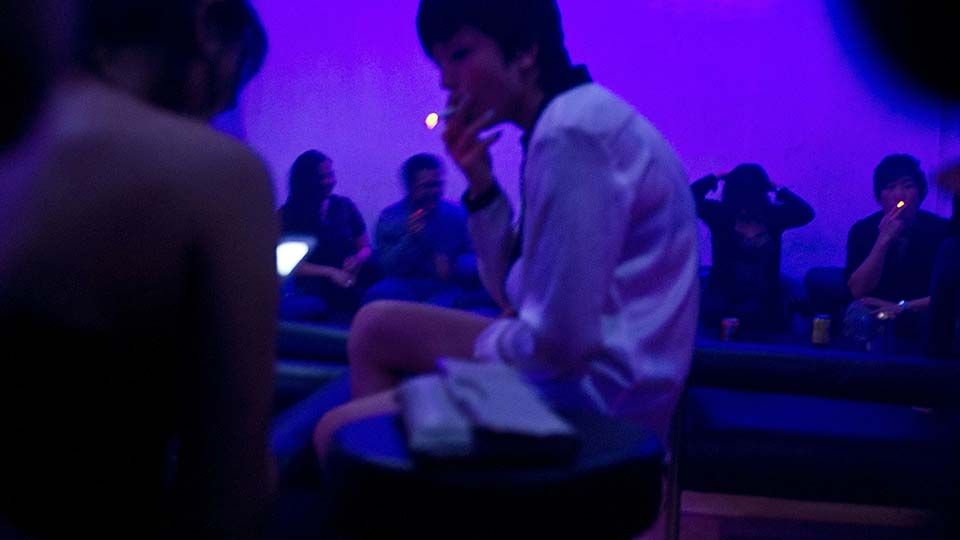June 6, 2025
THIMPHU – Bhutan faces an escalating youth drug crisis, with 3,678 individuals under the age of 24 arrested for drug-related offences between 2023 and 2024, accounting for over 50 percent of all drug arrests.
This alarming data, primarily involving unemployed male youth and students, was revealed in a comprehensive review report presented by the National Council’s (NC) Social and Cultural Affairs Committee (SCAC) during the ongoing 35th NC session on June 3.
The SCAC report, focusing on youth and substance abuse, highlighted inhalants, marijuana, sedatives, and opioids as the most commonly abused substances among young people.
The widespread import of over 491,518 kilogram of inhalants and solvents in 2024, despite their classification under the Schedule VI of the Narcotic Drugs, Psychotropic Substances and Substance Abuse Act (NDPSSAA), underscores a growing concern.
Beyond illicit drugs, the report also detailed pervasive issues with alcohol and tobacco.
Bhutan’s per capita adult alcohol consumption stands at 8.47 litres, surpassing the global average, with 30.7 percent of households engaged in home brewing.
In 2024, the country recorded over 10,000 alcohol retail outlets, roughly one for every 75 Bhutanese. Tobacco use remains a significant public health burden, causing approximately 400 deaths annually and incurring Nu 1.2 billion in healthcare and productivity losses, significantly outweighing the Nu 745 million in tobacco-related tax revenue in 2024.
Challenges and gaps
SCAC Chairperson, Gasa Member of Parliament (MP) Tshering said that poor retention in treatment and rehabilitation programmes, unregulated access to harmful substances such as inhalants and e-cigarettes, overcrowded detention centres, and prolonged judicial processes are among the major challenges in combating youth substance abuse.
Children in conflict with the law face severe reintegration difficulties due to stigma, lack of vocational certification, insufficient family support, and limited institutional resources, the committee stated.
Since there are limited hospital-based OPD SUD clinics, the high dropout rate, according to hospital staff, is attributed to distance, lack of family support, financial means to attend sessions, and a shortage of professional clinical counselors and psychiatrists.
MPs voiced concerns about the reactive nature of current laws.
Trongsa’s MP Rinzin Namgyel said, “Simply focusing on creating awareness and framing strict laws cannot solve the youth substance abuse issue until we understand the root causes of it. We need to explore new ideas to combat it.”
Calling for legal clarity, Pemagatshel’s MP Jamyang Namgyal said the existing laws in the country are reactive in nature rather than preventative. “To address youth substance abuse, the country needs legal clarity, political will, and national unity.”
In the report, the Royal Bhutan Police (RBP) stated several challenges in the fight against drugs, owing to financial constraints that hinder investment in advanced detection tools such as drug scanners at border points, and a lack of trained officials to deal with complex drug-related cases.
With the increasing number of drug cases involving youths, detention centres in urban areas such as Thimphu are overcrowded. While some manage to get bail, many languish for months.
Initiatives
To guide the nation’s approach to substance-related issues, the country has many laws in place, including the National Health Policy 2011, the National Youth Policy 2011, the National Policy and Strategic Framework to Reduce Harmful Use of Alcohol, the Narcotic Drugs, Psychotropic Substances and Substance Abuse Act (Amendment) 2018, the Tobacco Control Act (Amendment) 2021, and the Penal Code of Bhutan (Amendment) 2021.
At the same time, there are also various taxations on alcohol, tobacco, and other substances. Taxation on alcohol (100 percent Sales Tax and 100 percent Customs Duty) and tobacco (100 percent Sales Tax and 10 percent Customs Duty) is also in effect.
Treatment and rehabilitation efforts are ongoing, with the Mitshey Yarab Lamzang (National Drug Treatment and Rehabilitation Centre) having treated 253 clients since September 2023, 60.13 percent of whom are under 25. Of the 253 clients 55.73 percent are unemployed and 12.65 percent are students.
Prison-based SUD treatment covers 2,098 inmates, with 41 percent being drug-related convicts and 15 percent under 25.
Various stakeholders, including the PEMA Secretariat, the Youth Development and Rehabilitation Centre in Tsimasham, Nazhoen Lamtoen, the Youth Development Fund, Bhutan Institute for Wellbeing, Chithuen Phendhey Association, and Jurwa continue to look after youth wellbeing.
For instance, Nazhoen Lamtoen has helped 60 children reintegrate into the community since 2017 and Chithuen Phendhey Association treating over 1,400 people with addictions to alcohol and drugs since its inception in 2011.
Moreover, Nangchoe Programmes, and the Gyalsung and Dessung Programmes continue to benefit youths.
With regard to cross-border drug issues, the Department of Law and Order acknowledged that this topic has been consistently raised in bilateral forums, specifically in 25 rounds of Border Districts Coordination Meetings with the Government of India.
Way Forward
The SCAC recommended comprehensive reforms to the NDPSSAA and Tobacco Control Act, alongside the enactment of a dedicated Alcohol Control Act.
Other key recommendations include expanding the National Drug Task Force’s mandate, strengthening inter-agency coordination, prioritising ‘sin tax’ revenue allocation for agencies like the RBP, developing prevention education manuals, enhancing treatment and reintegration services, strengthening sports-based prevention programmes, institutionalising recognition programmes, and supporting education and livelihood opportunities for children in conflict with the law.
The government’s new Excise Tax Bill 2025 also proposes maintaining excise tax on alcohol, tobacco, and pan masala or supari.
The National Council is set to continue deliberations on SCAC’s recommendations regarding youth and substance abuse on June 6.


